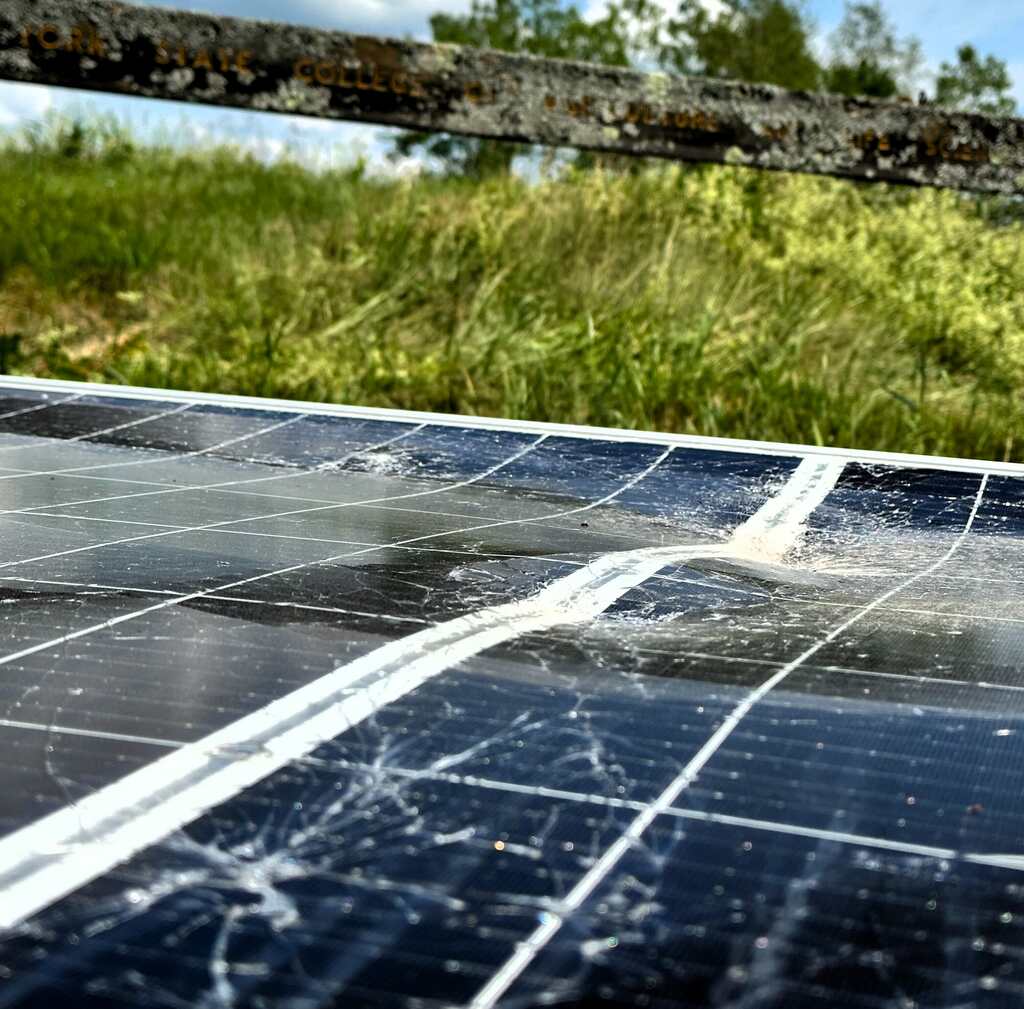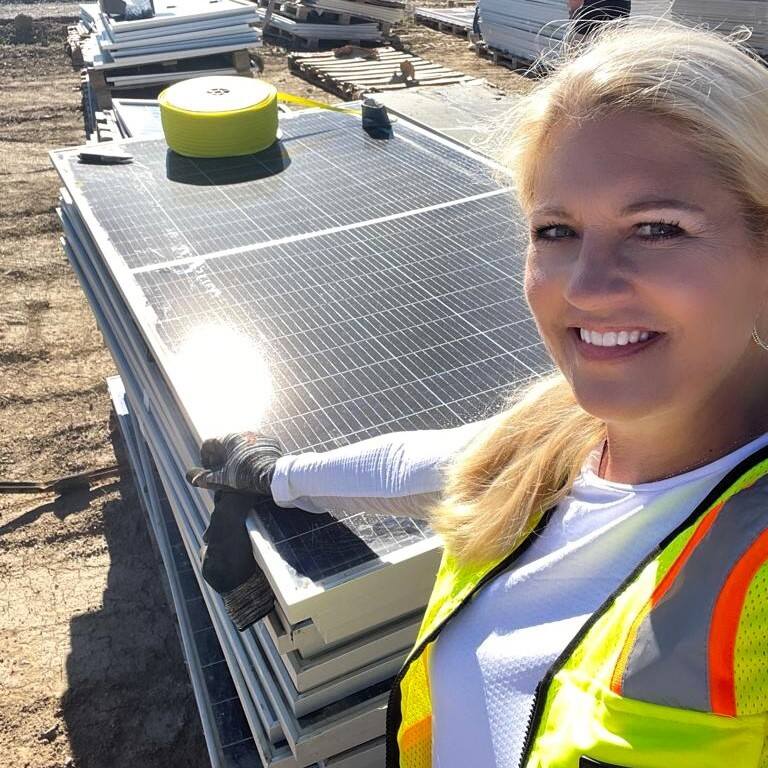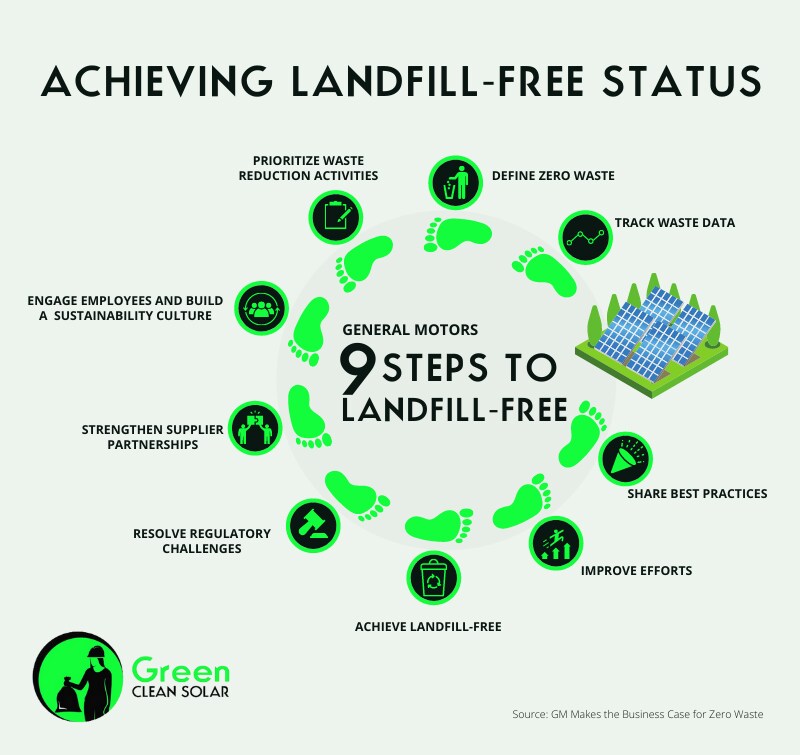
Solar panels last multiple decades (potentially as long as 40 years). But even if modules generate power for longer than today’s estimates, eventually they’ll reach the end of their useful life. What happens then? It is possible to recycle solar panels — and there are companies in the United States doing exactly that right now. We spoke with Emilie Oxel O’Leary, owner and CEO of Green Clean Solar, and AJ Orben, vice president at We Recycle Solar, to learn more about the viability of solar recycling.
Solar Recycling’s Future Potential
About 70% of solar systems around today were installed in 2017 or later. So there’s a long time to go until all those panels will need to be recycled. But we shouldn’t wait until then to figure out processes!
In just a few years, by 2030, the International Renewable Energy Agency estimates the raw materials recoverable from old panels could be worth around $450 million (and that’s in 2016 terms). That’s enough raw material to make around 60 million new panels! Plus, most of the components in solar panels are materials we already know how to recycle. One of those is glass, which comprises around 75% of a panel’s weight.
So solar recycling has the potential to be a big business. And some waste management professionals aren’t waiting around until then.

“We recycle solar panels by removing frames, shredding and milling the glass, and chemically separating the materials,” says Orben. Based in Arizona, We Recycle Solar says they have handled 495 tons of processed aluminum, 147 tons of processed copper, and 10,400 tons of processed glass. “We recover up to 99% of the raw commodities by weight, and recirculate them into the market for new applications and manufacturing.”
O’Leary, whose company is based in Georgia, says solar recycling opportunities “are excellent for recovering materials and getting creative with the glass, since it’s the biggest component of a panel by weight.” Green Clean Solar also recycles lithium ion batteries, all metals, solar site waste like plastic and cardboard, and other solar system components, like inverters, racking, and junction boxes.
The Challenges of Solar Recycling
However, as of now solar recycling is still expensive — and many people don’t even know it exists. “There’s a lot of misconceptions around solar — it makes sense they impact recycling too,” says Orben. “Most claim solar panels can’t be recycled because they don’t want developments in their community. This’ll change with policy and education, as it has with aluminum cans, electronics, etc.”
Another misconception is around panel toxicity, says O’Leary. She says most panels aren’t at all toxic. “Even the solar panels that contain cadmium (those deemed “toxic”) are recycled in a more careful manner to ensure safety,” she says. “Some states, like California, treat panels as e-waste, so they aren’t allowed to go to landfills, while other states don’t have a rule, and panels can be tossed in the landfill. There is no federal blanket law about where panels should go, even though the assumption would be that they should be recycled and recovered for their parts. For now, it’s up to counties, states, individuals, EPC companies, owners or developers, and utility companies.”

Solar Recycling Policy
O’Leary points to another factor important for solar panel recycling: policies. As opposed to Europe, where regulations require recycling, America lacks similar mandates. The European Union’s Waste Electrical and Electronic Equipment rules include solar panels (called photovoltaic panels on their website), and make solar panel manufacturers responsible for paying for recycling. No such rules exist at the federal level in the United States.
O’Leary says the U.S. has allowed “more time and more research to figure out the best policies and whether they are based more on incentives and guidance rather than hard line rules,” but that this different approach has “slowed down solar panel recycling adoption.”
Orben agrees, saying that since America hasn’t implemented panel disposal policies, owners have to deal with legal and environmental liabilities. “Unfortunately, recycling is an expense, as processing costs exceed the value of recovered materials. Most don’t budget for recycling at all — those that do tend to underestimate costs,” he says. “Solar panel recycling won’t fully gain adoption until policy is introduced. Without some form of a subsidy, processing doesn’t make economic sense, and recycling on its own isn’t a viable business.”

Solar Recycling Progress
Some states aren’t sitting around and waiting for federal policies, however. A National Renewable Energy Laboratory article pointed to laws passed recently in North Carolina and Jersey calling for end-of-life solar panel management studies. Other states had legislation pending at the time of their post, and Washington already requires manufacturers to take back or recycle panels without charging consumers for the service.
Closer to home, Fairfax County adopted a program earlier this year to recycle panels. And the SREC broker Uprise works with, Sol Systems, partnered with Texas company SOLARCYCLE just last month to recycle solar panels.
The Office of Energy Efficiency & Renewable Energy is also investigating other ways to reduce solar waste. These include extending panel lifespans, making panels easier to deconstruct, replacing expensive materials currently used in manufacturing with cheaper or more common ones, and improving material recovery.
“I’ve spent my career strengthening the circular economy, extending the useful life of devices, and minimizing waste. I wanted to be at the forefront—tackling new waste streams expected to pose immense global challenges,” says Orben.
While we may not have all the answers yet, it’s exciting to see companies and scientists working toward better solar recycling. And even without every issue perfectly sorted out right now, solar panels still become carbon neutral in around three years and provide a source of clean energy. So solar can amp up your sustainability and allow you to fight climate change with your roof.
Ready To Go Solar? We Can Help!
Get in touch with Uprise to learn more. We’d love to nerd out over solar with you or discuss renewable energy options for your home. Call (202) 280-2285 or reach out online.
Photos and graphics courtesy of Green Clean Solar.
Schedule Consultation
Uprise Solar is dedicated to providing affordable and accessible solar solutions for both residential and commercial properties in the DC, Maryland, and Virginia area.
"*" indicates required fields
